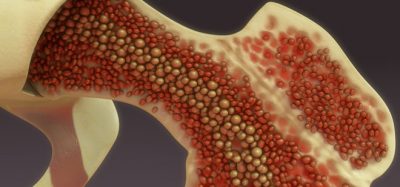Senolytic drugs reduce COVID-19 symptoms in mice, study shows
Posted: 9 June 2021 | Victoria Rees (Drug Target Review) | No comments yet
In pre-clinical studies, senolytic drugs were found to reduce inflammation and death from COVID-19 in older mice.


Researchers have shown that COVID-19 exacerbates the damaging impact of senescent cells in the body. In pre-clinical studies, senolytic drugs discovered by the team were shown to significantly reduce inflammation, illness and mortality from COVID-19 infection in older mice. The study was conducted at the Mayo Clinic and colleagues at the University of Minnesota, both US.
According to the researchers, senescent cells (damaged or non-functioning cells that persist in the body) contribute to many aspects of ageing and illness, including inflammation and multiple chronic diseases. The team sought to discover how COVID-19 causes much higher mortality in the elderly and chronically-ill. They showed that human senescent cells have an amplified response to the SARS-CoV-2 Spike (S) protein, provoking increased production of factors causing inflammation and tissue damage by senescent cells.
They also found that older mice infected with viruses, including a coronavirus related to SARS-CoV-2, showed an amplified reaction, with increased senescent cells, inflammation and nearly 100 percent mortality. When the researchers treated similar mice – before or after the infection – with senolytics, drugs that selectively remove senescent cells from the body, the result was the opposite. Antiviral antibodies increased, while signs of inflammation and senescent cells significantly decreased along with mortality, so survival of the old, infected mice became more like that of younger mice.
Biomarkers aren’t just supporting drug discovery – they’re driving it
FREE market report
From smarter trials to faster insights, this report unpacks the science, strategy and real-world impact behind the next generation of precision therapies.
What you’ll unlock:
- How biomarkers are guiding dose selection and early efficacy decisions in complex trials
- Why multi-omics, liquid biopsy and digital tools are redefining the discovery process
- What makes lab data regulatory-ready and why alignment matters from day one
Explore how biomarkers are shaping early drug development
Access the full report – it’s free!
The researchers suggest that reducing the existing burden of senescent cells in older or chronically-diseased patients may increase their resilience and decrease their risk of dying from viral infections, including SARS-CoV-2.
“Even though vaccine use is growing, senolytics could still be helpful to those who cannot receive the vaccine and especially to older individuals in nursing homes with comorbidities or immunity issues,” said Dr James Kirkland, one of the senior authors from the study.
The team say the study also suggests senolytics could improve the response of the elderly to COVID-19 vaccines and help them fight bacterial and other viral infections.
The findings appear in Science.
Related topics
Drug Development, Drug Leads, In Vivo, Molecular Targets, Pharmacology, Translational Science
Related conditions
Covid-19
Related organisations
Mayo Clinic, University of Minnesota
Related people
Dr James Kirkland








